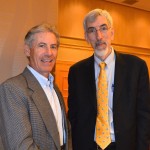4 Things We Learned About Data, Leadership and Budgeting at the CPBB Conference
By NRC on August 10, 2015
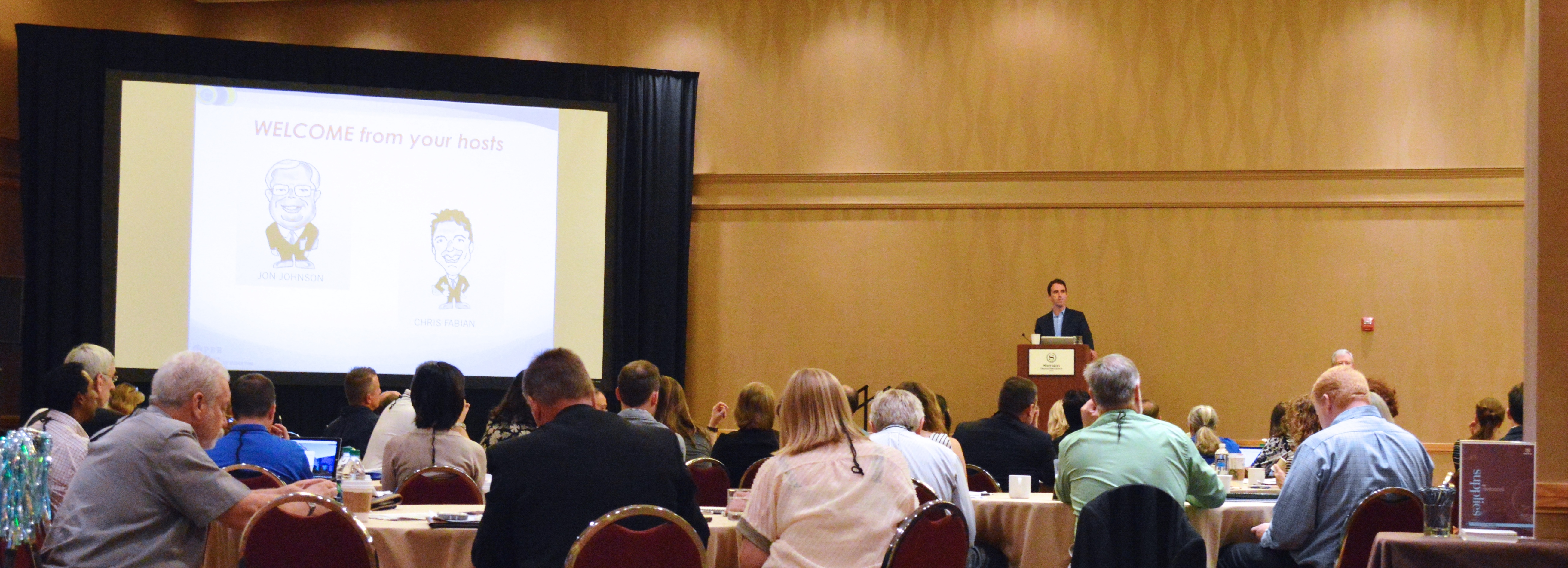
“Driving the Data Focused Future of Communities”
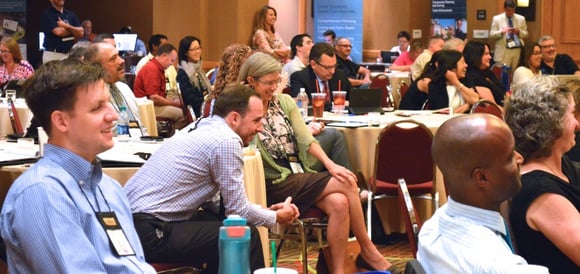
The Center for Priority Based Budgeting (CPBB) lead about 100 community officials into critical discussions on budgeting, leadership and the data-driven future at their 4th Annual Conference in Denver. This year’s “unconference” featured innovators in local government who pioneer best practices in data-based initiatives. As a company who collects, analyzes and provides the data needed to drive communities forward, National Research Center, Inc. (NRC) was pleased to attend the conference and gather a few notes to share.
1. Opinion Data Take-Away
Tom Miller, NRC President & CEO
Keynote speaker Mark Funkhouser, former mayor of Kansas City and publisher of Governing magazine, revealed how leaders should first consider the results from opinion data. He said that when executive staff or elected officials receive citizen survey results that identify areas the public finds to need improvement, best practice should NOT be to conclude that residents simply don't understand the wonderful work the local government is doing; best practice should NOT be to aim only at educating the uninformed. (This attitude may be perceived by the public as arrogant.) Instead, leaders should read their survey results as opportunities to do better by improving services, partnerships or policies. [Tom Miller with Mark Funkhouser pictured.]
2. Effective Use of Data
Damema Mann, Senior Survey Associate
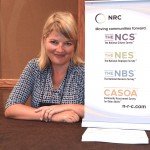 The conference reaffirmed the importance of using data effectively. It is not enough to collect data just for the sake of having it. Data must be interpreted and used for the community's benefit. Brian Elms from Denver Peak Academy mentioned that math should be simplified and jargon minimized when outwardly communicating data-informed decisions (a reoccurring theme at this year's "unconference"). When analyzed, interpreted and explained well, data is the best tool to distinguish problems and actuate lasting change.
The conference reaffirmed the importance of using data effectively. It is not enough to collect data just for the sake of having it. Data must be interpreted and used for the community's benefit. Brian Elms from Denver Peak Academy mentioned that math should be simplified and jargon minimized when outwardly communicating data-informed decisions (a reoccurring theme at this year's "unconference"). When analyzed, interpreted and explained well, data is the best tool to distinguish problems and actuate lasting change.
3. Focusing on the Reason
Chelsey Farson, Research/Survey Associate
 Something that really stuck with me was the strategy of “starting with the why” from Kathie Novak’s presentation on “Understanding the Role of Local Government.” If local government leaders want to have great influence in their community, they must first ask about the purpose and role of local government; why does it exist from the perspectives of citizens. Understanding citizen priorities and perspectives should be a valued contributor to strategic planning and should define the true purpose of local government in their community.
Something that really stuck with me was the strategy of “starting with the why” from Kathie Novak’s presentation on “Understanding the Role of Local Government.” If local government leaders want to have great influence in their community, they must first ask about the purpose and role of local government; why does it exist from the perspectives of citizens. Understanding citizen priorities and perspectives should be a valued contributor to strategic planning and should define the true purpose of local government in their community.
4. Transparency in Finance
Angelica Wedell, Marketing and Business Development Coordinator
 CPBB Conference host and co-founder Jon Johnson emphasized the need for transparency in government budgeting. He stressed that communicating specifics with the public fosters trust. "Show the people what the money is for," he said. Transparency can answer tough questions in advance and prove that the funds have a valid reason. Whether with working capital, general savings, emergency funds etc. - transparency allows government organizations and the public to work together.
CPBB Conference host and co-founder Jon Johnson emphasized the need for transparency in government budgeting. He stressed that communicating specifics with the public fosters trust. "Show the people what the money is for," he said. Transparency can answer tough questions in advance and prove that the funds have a valid reason. Whether with working capital, general savings, emergency funds etc. - transparency allows government organizations and the public to work together.
Popular posts
Sign-up for Updates
You May Also Like
These Related Stories
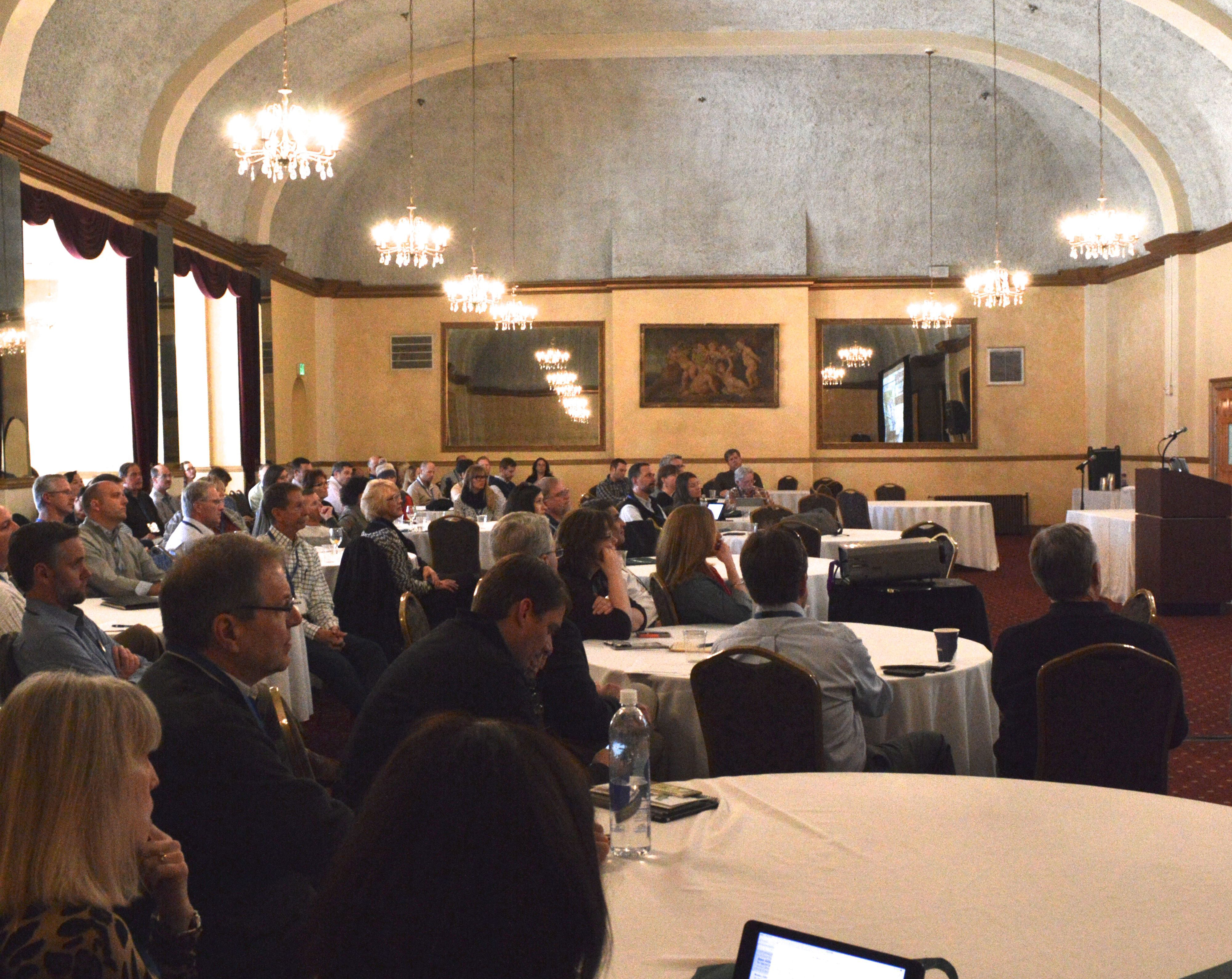
What Colorado’s Community Leaders Learned at the 2016 CCCMA Conference

NRC Rocks Out in Nashville with National League of Cities


